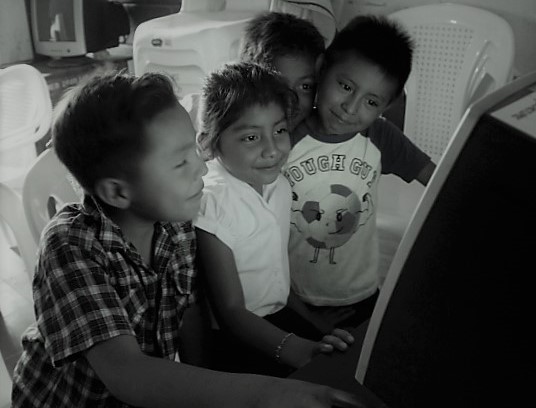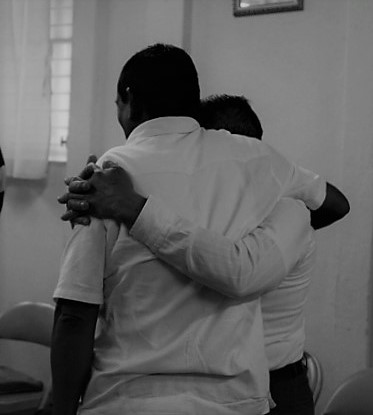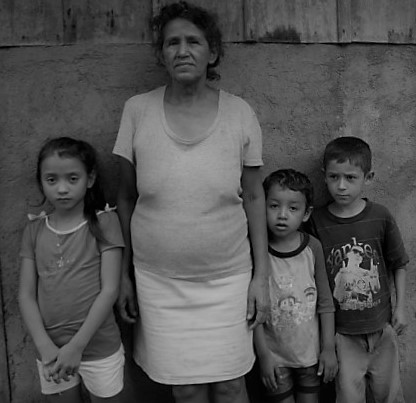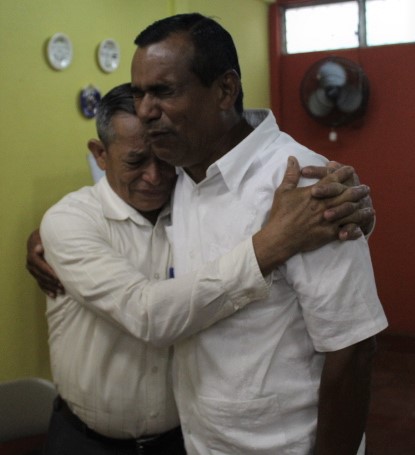A Letter from Jhan Dotel-Vellenga and Ian Vellenga, serving in Nicaragua
October 2020
Write to Ian Vellenga
Write to Jhanderys Dotel-Vellenga
Individuals: Give online to E200391 for Ian and Jhanderys Dotel-Vellenga’s sending and support
Congregations: Give to D507593 for Ian and Jhanderys Dotel-Vellenga’s sending and support
Churches are asked to send donations through your congregation’s normal receiving site (this is usually your presbytery).
Subscribe to our co-worker letters
Dear friends,
Several weeks ago I took part in a workshop about building resilience. It was put together by the Presbyterian Disaster Assistance program for all of those interested in learning a little more about the topic and perhaps sharing it with others. Given the current climate and all the challenges we had faced the last couple of months, it seemed like something relevant to participate in.
Resilience is the ability to bounce back from challenging times in life. Resilience comes from the lessons and skills we learn as we grow up and as we face difficulties. It’s a person’s natural ability to cope, deal with, and adapt to hardship and adversity when they are faced with calamity, natural disasters, health concerns, relationship troubles, divorces, tragedies, school challenges, job losses, or the death of a loved one. Resilience is how well a person can accommodate to the events in their life.
Resilience is also deeply connected to our mental health and well-being. It influences or determines how we think, feel, and behave in our daily lives, activities, and interactions. It effects our ability to handle stress, manage and overcome challenges, and it also impacts the way in which we build/maintain relationships, and recover from troubles and mishaps. Resilience doesn’t mean that a person doesn’t feel the magnitude of the circumstance or problem. They still experience anxiety, distress, and grief, but instead of letting themselves be overcome by these situations and feelings, they’ve found ways to deal with it. The way in which we cope with the different situations and problems in our life has a huge influence on our conduct, our ability to recover and thrive, our actions, and our behavior.
In the recent history many countries, mainly developed ones, have created and invested in social protection programs. The main purpose of these programs is to help individuals and families, especially the poor and vulnerable ones, to cope with natural disasters and different types of crises. These social programs can help with issues such as health, education of children, tutoring young people, creating jobs, and even protecting the aging population.
Unfortunately, developing countries (and even some developed ones) often lack these types of programs and are unable to provide safety nets for their population in the case of emergencies and catastrophes. This makes me think about the people and communities we work with in Nicaragua. Communities that are underprivileged and not well served, where most of the people face multiple challenges daily, such as meeting basic daily needs for themselves and their families. Their challenges go way beyond the random natural disaster or unpredictable global pandemic. Many of them are part of communities where basic education, healthcare, and potable water are still lacking, and the means to provide them is a big challenge. Their strength and capacity to endure often come from a place of optimism and hope. They show incredible resilience and creativity in the face of deprivation and poverty, and despite the lack of resources, many of these individuals and families are capable of acquiring their homes, providing basic education for their children and maintaining acceptable health conditions.An important component of CEPAD’s work is to support and assist people living in rural communities by implementing programs that aim to help them better support themselves and their families through community training, leadership, sustainable agriculture, economic development, and much more. Part of what we can do as partners of communities like these is add to that resilience by providing a listening ear and, when possible, a helping hand. Social support is another critical variable that contributes to resilience. Research suggests that positive relationships and supportive environments have an important role to play in communities and individuals by providing guidance, reliable connections, social integration, and reassurance of worth. The people in these communities are already good at surviving, but as partners we can help them to thrive and flourish. Resilient people tend to have the support of family and friends who help and uplift them spiritually and emotionally in times of trouble or difficulty. We might not be able to help them to meet all their needs or even resolve many of the problems they face everyday, but with our support we can help to strengthen their ability to withstand, adapt to, and recover from adversity. We can join their efforts and be part of that necessary safety net that they are often lacking by supporting CEPAD’s programs and efforts and even partnering with some of these communities. During these times, with pandemics, political uncertainty, and divisiveness, resilience and support are more crucial than ever.
We thank you for your support to our work and mission, and for keeping the people of Nicaragua and CEPAD in your thoughts. We pray for your safety and well-being during these troubled times and hope you are surrounded by love and abiding grace.
Ian and Jhan
![]() You may freely reuse and distribute this article in its entirety for non-commercial purposes in any medium. Please include author attribution, photography credits, and a link to the original article. This work is licensed under a Creative Commons Attribution-NonCommercial-NoDeratives 4.0 International License.
You may freely reuse and distribute this article in its entirety for non-commercial purposes in any medium. Please include author attribution, photography credits, and a link to the original article. This work is licensed under a Creative Commons Attribution-NonCommercial-NoDeratives 4.0 International License.



